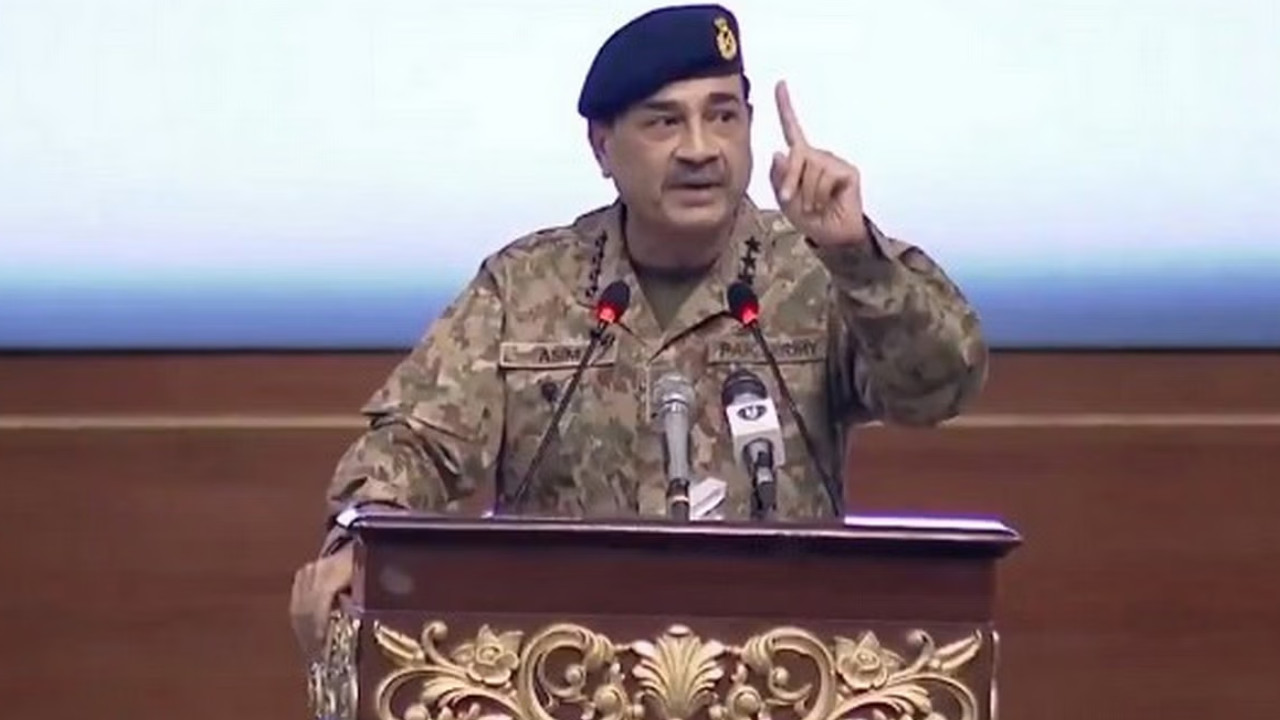
Pakistanis Army Chief Asim Munir (Social Media)
International News: Pakistan’s Army Chief, Field Marshal Asim Munir, has once again targeted India with sharp rhetoric, this time using his remarks on Afghanistan as a cover for his accusations. In a speech laced with allegations, Munir accused India of being the primary sponsor of terrorism in South Asia—a claim that contradicts Pakistan's own long-documented history of supporting extremist groups.
While speaking to officers attending the 52nd Common Training Program in Rawalpindi, Munir stated:
“India is the largest state sponsor of terrorism in the region. Pakistan desires cordial relations with its Islamic brother Afghanistan, but it expects that groups like 'Fitna al-Hindustan' and 'Fitna al-Khawarij', backed by India, must not be allowed refuge on Afghan soil.” He further added that “Pakistan will never accept Indian hegemony. We have never bowed before India, nor will we ever do so.”
Munir’s remarks come despite Pakistan’s well-known global reputation as a sanctuary for terrorism. Osama bin Laden—the mastermind behind the 9/11 attacks—was found hiding in Abbottabad, mere meters from a military academy. This single incident dealt a significant blow to Pakistan’s credibility on the international stage.
Moreover, notorious terrorists like Hafiz Saeed (planner of the 2008 Mumbai attacks), Masood Azhar (accused in the Pulwama blast), and Zaki-ur-Rehman Lakhvi (coordinator of Lashkar-e-Taiba) have operated openly within Pakistan, often enjoying state patronage. The country continues to harbor UN-designated terrorists while denying involvement, despite mounting evidence.
Munir alleged that terrorism in India is a result of minority oppression and discrimination. However, data tells a different story. In 1947, minorities made up approximately 23% of Pakistan’s total population. Today, that number has shrunk to under 3%, primarily due to persecution, forced conversions, and systemic marginalization.
Conversely, India’s minority communities—particularly Muslims—have grown in number and are actively engaged in political, economic, and social life. While issues do exist, India’s constitutional framework protects minority rights, unlike Pakistan, where blasphemy laws and mob violence remain constant threats.
Munir claimed that Pakistan’s armed forces are “fully prepared to fight modern wars,” yet the country’s economic condition tells a different story. Facing mounting debt, persistent inflation, and a fragile political setup, Pakistan is on the verge of financial default. Dependence on IMF bailouts and China’s growing control over its strategic assets make any talk of military readiness look hollow.
In his address, Munir also emphasized the need to embrace “Pakistanism” over ethnic or regional identities:
“Nations that forget their history lose their future.” Yet, Pakistan’s historical narrative is marred by repeated military coups, religious intolerance, and its consistent use of terrorism as a geopolitical tool—hardly ideals to inspire a strong national identity.
Field Marshal Munir’s speech appears less about India and more about Pakistan’s internal disarray. With growing insurgency in Balochistan, deteriorating ties with Afghanistan, and global scrutiny over terror links, targeting India is a convenient diversion. This strategy has been used time and again by Pakistani leadership to consolidate domestic control and deflect international criticism.
But in today’s interconnected world, such narratives are no longer accepted at face value. The global community is increasingly holding Pakistan accountable, and its attempt to paint India as a villain lacks both substance and credibility. Munir’s fiery rhetoric may stir nationalistic emotions at home, but it fails to convince globally. Until Pakistan confronts its internal contradictions—from terrorism to minority rights—and stops scapegoating its neighbors, it will continue to lose both international trust and regional relevance.





Copyright © 2026 Top Indian News
